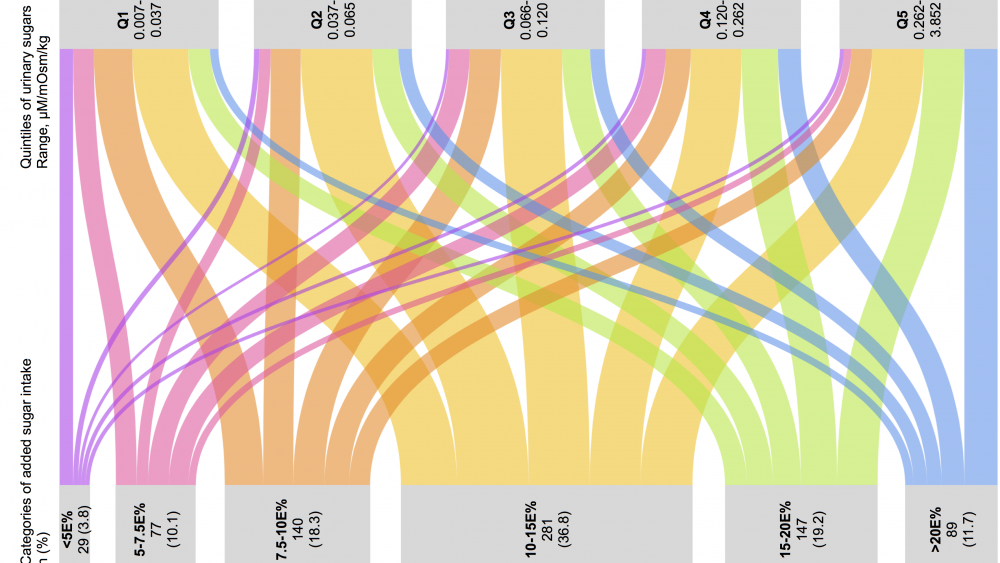To get this blog rolling, we want to announce that we recently published a new article in Frontiers in Nutrition named Comparing Self-Reported Sugar Intake With the Sucrose and Fructose Biomarker From Overnight Urine Samples in Relation to Cardiometabolic Risk Factors. The article was published in the research topic Objective Dietary Assessment in Nutrition Epidemiology and was edited by Natasha Tasevska who has done all the initiative research about the urinary sucrose and fructose biomarker. The project was led by Stina Ramne and was made together with collaborators at Reading University, UK.
If you weren’t aware already, this is important background information. Misreporting of dietary intakes is a common challenge in nutritional epidemiology and, therefore, are nutritional biomarkers warranted to objectively assess intake.
As stated, the use of urinary sucrose and fructose as objective biomarkers of sugar intake has already been developed, evaluated and validated by Natasha Tasevska. However, this work has been done in 24-hour urine samples, meaning that all urine excreted during 24 hours must be collected. To facilitate data collection in large epidemiological studies, we found it very valuable to evaluate this biomarker in overnight urine samples, which only requires that a fasting morning sample (and any urine excreted during the night, if any) is collected. Much easier and less of a mess!
This study was conducted in the Malmö Offspring Study and is the first study to (1) examine this biomarker from overnight urine samples, (2) compare and relate the biomarker and self-reported sugar intake to cardiometabolic risk factors and (3) evaluate a composite measure of the biomarker and self-reported sugar intake.
“In summary, we found statistically significant correlations at levels of r≈0.20–0.30 and demonstrated the potential for using the sugar level in overnight urine samples to complement self-reported dietary data in investigations of cardiometabolic risk. The combination of urinary sugars and added sugar intake indicated that a higher sugar intake in women is associated with higher BMI, waist circumference and systolic blood pressure, and lower HDL cholesterol. Considering the potential gains from collecting only overnight urine instead of 24-hour urine in regard to participant burden, drop-out rates, missing data and selective participation, the overnight urinary sugar biomarker calls for further validation.”

